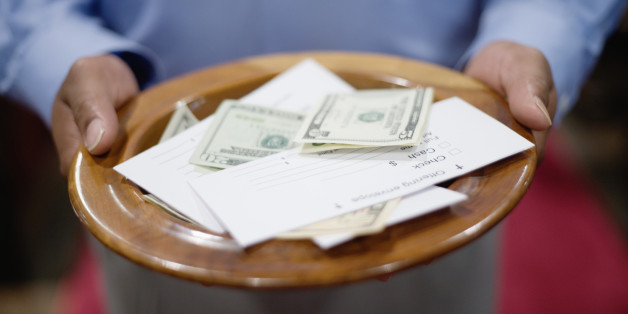After receiving an unexpected windfall of $1.6 million, a small Chicago church took a giant leap of faith earlier this month: it choose to give a chunk of the money away to congregants, with little more than a modest request for how it was to be spent.
Members of the the LaSalle Street Church in Chicago’s Near North Side were shocked when Pastor Laura Truax told them during services September 7 that each “actively engaged” member of the church would receive a check for $500. The money came with no conditions, but recipients were encouraged to use it for good works.
aust
“It feels like a faith experiment more than a social experiment,” Truax told The Huffington Post. “We say we trust the Gospel, we say we trust each other. But I was wondering, ‘Is this going to be a waste of money?'”
Church elders deliberated for months over how to spend the money — an unexpected windfall from a real estate investment made in the 1970s — mulling options that included a housing investment and an Ebola clinic in Africa. They agreed that while they’d eventually determine how to give all the money away, 10 percent would go to the congregation up front. In all, the church wrote 320 $500 checks to members deemed “actively engaged” with their “time, talents or treasures.”
Invoking the Biblical parable of Jesus feeding multitudes with nothing but a small amount of food, the money quickly became known to the social justice-minded congregation as the “Loaves and Fishes” checks. And church members immediately started thinking of ways the money could make a bigger impact in the world.
One church member, John Bakker, wants to use his $500 to help the non-profit World Vision create an Ebola education campaign in West Africa by leveraging social media the way the ALS Ice Bucket Challenge did so successfully.
“We need to act fast,” said Bakker, whose family has a 64-year-history of missions work in Nigeria. “Every 15 days, the number of people living with the virus doubles.”
Though Truax was anxious, admitting that “our little church has a budget hole of its own,” she’d put her faith in the congregation before: two years earlier, using $1,000 of her own money, Truax taped $100 bills under some of the pews to illustrate a parable about undeserved grace.
She later learned most of the 10 recipients used the cash to help someone else.
“Jesus is an unconventional guy. And he’s risky. And he’s bold,” Truax said. “It struck me in all this that he never bothers to write down his own story: He gives his followers incredible freedom to write down what he says. Jesus could trust it all. He trusted people would listen as they were going to listen and follow as they were going to follow.”
Only 13 members of LaSalle’s congregation were around when the church first bought into a residential complex in the neighborhood back in 1978. Worried poorer residents were being priced out, LaSalle and several other area churches bought stakes in the property to set aside affordable housing units. But when the covenants expired and the new primary developer wanted to sell, the churches negotiated for more affordable units in the new development. In exchange, they had to relinquish their shares in the property; each church walked away with $1.6 million.







